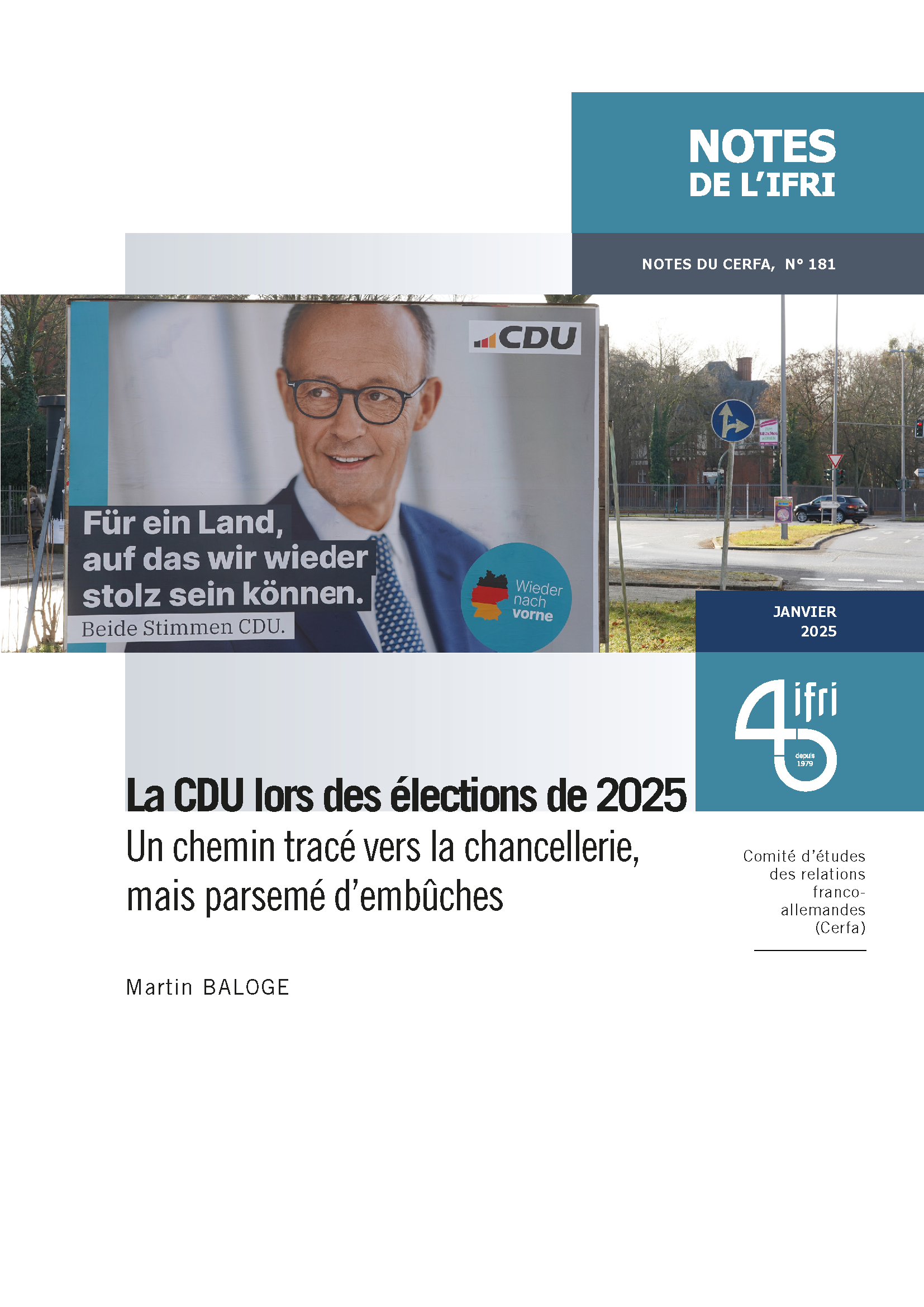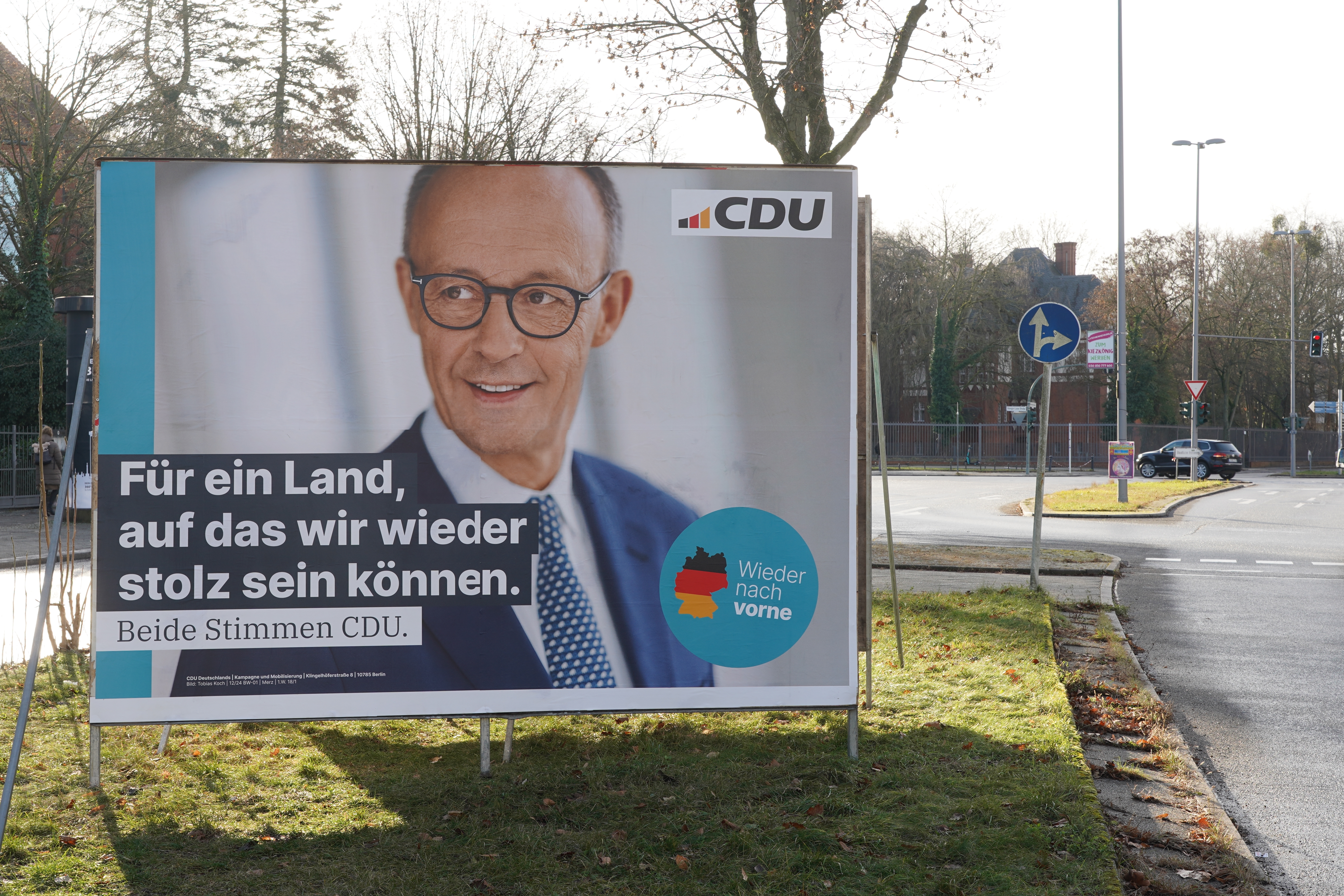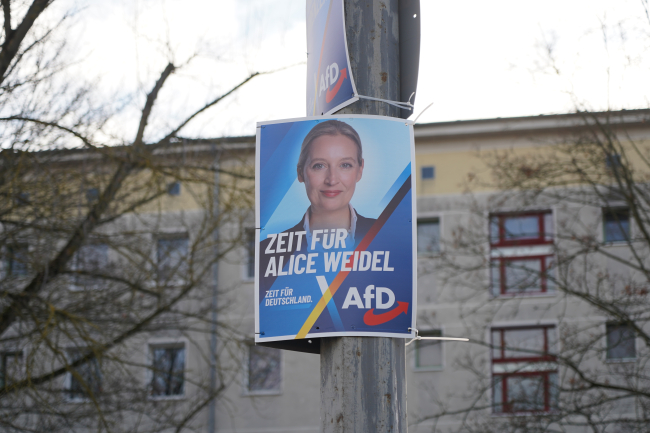The CDU in the 2025 Elections: A Road to the Chancellery, Paved with Challenges

After a legislative session in the opposition, the Christian Democratic Union/Christian Social Union (CDU-CSU) looks set to win the snap elections in February 2025. It is very likely that the country’s future chancellor will be Friedrich Merz.

A strong opponent of the “traffic light” coalition since becoming leader of the party and parliamentary group in 2021, Merz's program is radically opposed to that of the SPD on all points except pensions, and to that of the Greens except on foreign policy issues. Embodying the right wing of the CDU for several decades, Merz is seeking to counter the rise of the AfD with an economically liberal and socially conservative program. But this expected victory comes against an extremely difficult context for the future government, whoever it may be. Numerous issues, in particular immigration, the country’s economic weakness, the debt crisis and the Ukrainian crisis, will determine both the CDU’s campaign and its margin for maneuver if it returns to power. This election is set to be one of the most ideologically polarized in years and the formation of future coalitions with the SPD or the Green Party will undoubtedly be extremely difficult.
Martin Baloge holds a PhD in political science from the University of Paris 1 Panthéon-Sorbonne and is a lecturer at the Catholic University of Lille within the Faculty of Humanities and Social Sciences (Laboratory MUSE). He recently published ‘Life and Death of the Wealth Tax: Struggles for Interest Representation in the National Assembly and the Bundestag’ (Éditions de la Maison des sciences de l’Homme, 2022) and ‘Politics in Germany’ (Éditions La Découverte, 2024).
This publication is available in French (PDF): "La CDU lors des élections de 2025 : un chemin tracé vers la chancellerie, mais parsemé d’embûches".

Available in:
Themes and regions
DOI
Notes of Cerfa, No. 181, February 2025
Share
Download the full analysis
This page contains only a summary of our work. If you would like to have access to all the information from our research on the subject, you can download the full version in PDF format.
The CDU in the 2025 Elections: A Road to the Chancellery, Paved with Challenges
Related centers and programs
Discover our other research centers and programsFind out more
Discover all our analysesFriedrich Merz and the Zeitenwende 2.0. A “New Era” for Transatlantic Relations?
On February 23, 2025, almost 60 million voters were called upon to elect a new Bundestag. These elections will also give rise to a new government in Europe's largest economy.
After the Elections: Germany in Search of Shaken Stability?
With a voter turnout of 82.5%, Germany recorded its highest participation since 1987—an increase of 6.1 percentage points compared to 2021. As in the previous election, the high turnout particularly benefited the Alternative for Germany (AfD), which was able to mobilize many former non-voters. Many voters sought to punish the outgoing government with their ballots, as its approval rating had dropped to just 14% before the coalition broke apart in November 2024. Germany is now very likely heading toward a grand coalition between the CDU/CSU and the SPD, with exploratory talks having begun on February 28.
The German Greens as an Alliance Party: The End of an Illusion?
At the Wiesbaden Congress in November 2024, Robert Habeck, currently Minister for the Economy and Climate, was nominated as the Green Party’s candidate for the Chancellorship in the early parliamentary elections on February 23, 2025. The party, founded 45 years ago, is now firmly established in the German political landscape. Wishing to turn the page on an unloved ‘‘traffic light’’ coalition, the party is banking on a personal campaign and an optimistic discourse based on the energy transition and social justice.
The rise of the AfD and the choice of radicalism
Founded in 2013, the Alternative für Deutschland (AfD) has become increasingly radical as crises have unfolded. Since 2015-2016 and the massive influx of immigrants into Germany, it has positioned itself as a virulently anti-migrant party and continues to consolidate its foothold in the German political system, particularly in parliaments. While its roots are very strong in the eastern regions, where its main strongholds are located, it is also attracting more and more voters in the west, against an overall backdrop of normalization of the far right and a national context marked by strong economic and political destabilization.










